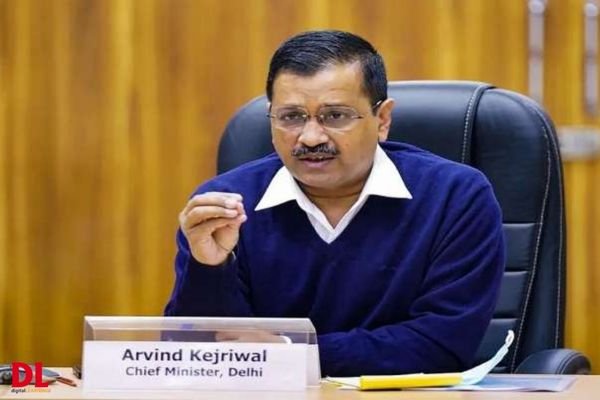Delhi Chief Minister Arvind Kejriwal made headlines on Thursday when he criticized the Bharatiya Janata Party (BJP) for allegedly supporting Pakistani refugees who protested outside his residence. The Aam Aadmi Party (AAP) leader’s remarks came in response to demonstrations by Pakistani Hindu refugees protesting against his stance on the implementation of the Citizenship Amendment Act (CAA).
In a strongly worded post on social media platform X (formerly Twitter), Kejriwal expressed his outrage at the incident. He accused the protesters of causing a disturbance and questioned the BJP’s support for them. Kejriwal emphasized that as the elected Chief Minister of Delhi, he was accountable to the people of the city and would not apologize to individuals, especially those from outside the country.
The protest outside Kejriwal’s residence occurred amid ongoing tensions surrounding the implementation of the CAA, which has been a contentious issue in Indian politics. The Act aims to provide Indian citizenship to persecuted minorities from neighboring countries, including Hindus, Sikhs, Buddhists, Jains, Parsis, and Christians, who arrived in India before December 31, 2014. However, critics argue that the law discriminates against Muslims and undermines the secular principles of India’s constitution.
Kejriwal’s comments against the protesters reflect his broader criticism of the CAA and its potential implications. He warned that the Act could lead to an influx of refugees from Pakistan and create social unrest across the country. The Chief Minister accused the BJP of attempting to exploit these refugees for political gain, alleging that the party aimed to secure their votes by supporting their cause.
This latest salvo from Kejriwal comes in the wake of his previous criticism of the Union Government’s handling of the CAA issue. He had raised concerns about the safety of women in Delhi in the presence of Pakistani migrants from Pakistan and questioned the government’s decision to grant them citizenship. His remarks had triggered a backlash from the BJP and members of the migrant community, who accused him of playing divisive politics.
In response to Kejriwal’s criticism, Union Home Minister Amit Shah accused him of engaging in “vote-bank politics” and targeting minorities. Shah argued that the refugees mentioned by Kejriwal had already taken refuge in India and were entitled to citizenship under the CAA. He also questioned Kejriwal’s silence on issues related to Bangladeshi infiltrators and Rohingyas, suggesting that the Chief Minister was selectively raising concerns for political gain.
The exchange between Kejriwal and Shah underscores the deep divisions within Indian politics over the CAA and immigration issues. While the BJP sees the Act as a humanitarian gesture towards persecuted minorities, critics like Kejriwal view it as discriminatory and potentially destabilizing. The issue has become a rallying point for political parties seeking to mobilize support among different communities and voter demographics.
As the debate over the CAA continues to simmer, leaders like Kejriwal are likely to play a significant role in shaping public opinion and influencing the direction of Indian politics. Their statements and actions will be closely watched as the country grapples with complex issues of identity, citizenship, and social justice.
